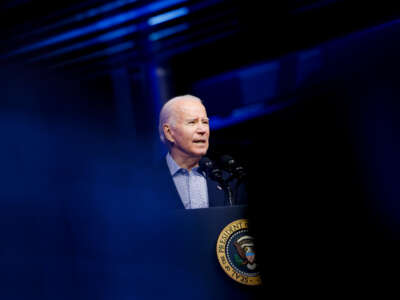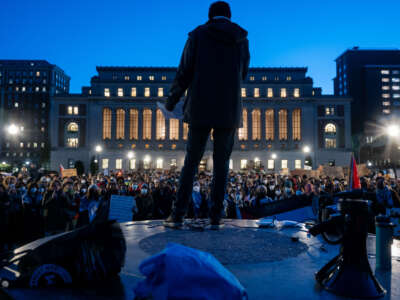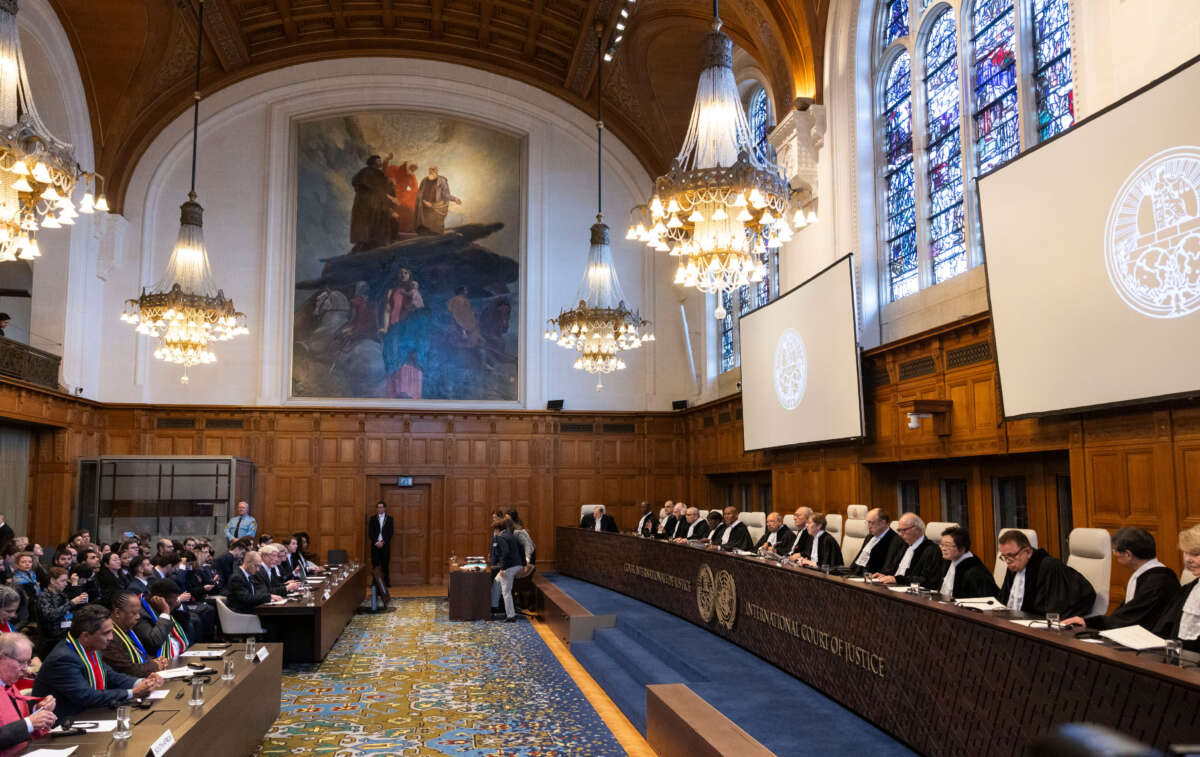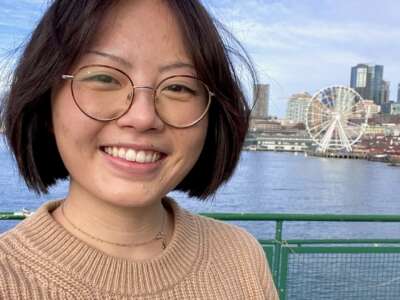I have experienced unrelenting pressure from Florida Atlantic University to disavow my anti-Zionist ethical commitments.
By Nicole Erin Morse ,

Today, I submitted my resignation as director of the Center for Women, Gender, and Sexuality Studies (WGSS) at Florida Atlantic University (FAU). Although it might at first appear that this choice was driven by the ever-intensifying political attacks against gender studies in Florida, these attacks are precisely why I would have wanted to remain as director. As a genderqueer scholar, I have been deeply committed to defending the center and advocating for the value of our research and teaching. However, I am also an anti-Zionist Jewish scholar, and since October 7, I have experienced unrelenting pressure from the university to disavow my religious practice, my religious community and my ethical commitments.
On January 16, FAU administrators made it explicitly clear to me that to be a leader at the university, I must support Israel. I have chosen to resign from the directorship in order to speak out about what I have experienced, and to add my experience to the hundreds of stories of academics and cultural workers who are being targeted in order to silence criticism of the state of Israel amid its genocidal campaign in Gaza.
One of Many Anti-Zionist Jews
Growing up as a third-generation American Jew, I learned about the Shoah and I was taught that Jews have responded to our experience of genocide by understanding that resisting oppression is an ethical and a religious imperative. Although I also grew up immersed in hasbara (Israeli state propaganda), my parents’ values and my commitment to justice led me to the conviction that an ethnonationalist state built on ethnic cleansing, occupation/siege and apartheid is fundamentally contrary to Judaism’s values of tzedek (justice) and shalom (peace).
This is a perspective that is shared by many Jews, whether religious or secular. In fact, until World War II, anti-Zionism was quite common among world Jewry. In the late 19th and early 20th centuries, the International Jewish Labor Bund rejected Zionism in favor of internationalism, diasporism and socialist solidarity. In response to the Balfour Declaration in 1917, the only Jewish member of the British Parliament, Edwin Montagu, described the declaration’s Zionist position as antisemitic.
RELATED STORY
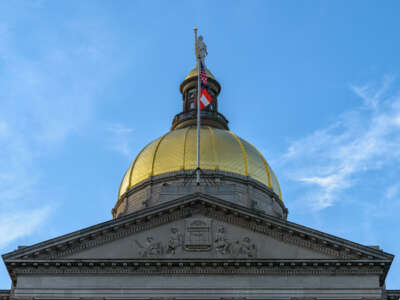
Bills in Georgia Aim to Suppress Cop City, Pro-Palestine Activists
“Don’t sleep on this red clay fascism y’all,” one political theorist said.
By Zane McNeill , TRUTHOUT January 24, 2024
In the 21st century, anti-Zionist Jews include everyone from ultra-orthodox groups like Satmar Hasidim and Neturei Karta, to Jews organizing for social justice with Jewish Voice for Peace (JVP), to my home synagogue, Tzedek Chicago. For many Jews worldwide, anti-Zionism is a principled political commitment and an important part of our religious identity and religious practice.
Prejudice and Repression in the Academy
FAU, however, has deep ties to the state of Israel and any hint of anti-Zionism is swiftly silenced. These dynamics are longstanding and predate October 7. In September 2023, I was pressured by FAU administration not to serve as the faculty adviser for Students for Justice in Palestine (SJP) because, like myself, some members of the group are committed to the democratic principle of “one person, one vote” in Israel/Palestine. During one meeting, I was told by a horrified administrator that democracy in the region “would mean an Arab majority.” The implication was that racialized people are dangerous, untrustworthy and incapable of participating in civic life, which is a longstanding colonialist trope.
After October 7, the situation at FAU rapidly became untenable for many Palestinian, Muslim and Arab students, as they faced racist harassment, eliminationist rhetoric, death threats and rape threats — all while receiving no institutional support. They were characterized by FAU leadership as violent, even implicitly as antisemitic. Some of these dynamics are chronicled in a University Press story about the repression of pro-Palestinian voices at FAU.
Simultaneously, as I participated in Jewish efforts advocating for a ceasefire (including my synagogue’s weekly Jewish Fast for Gaza and peaceful protests organized by South Florida JVP), I found myself similarly targeted and smeared as “antisemitic,” despite being an observant Jew. To be clear, anti-Zionism should never be conflated with antisemitism, whether it is a position held by Jews or non-Jews, religious or secular. But my experience is inevitably colored by my Jewishness, and by being treated as an antisemite because of my religiously informed commitment to anti-Zionism.
Harassment, Accusations and Investigations
Enquiries into my supposed “antisemitism” have focused on two incidents: my letter to the editor that was published by the Palm Beach Post on October 9, and my arrest for participating in peaceful civil disobedience at the office of Sen. Rick Scott on October 17. These are activities that occurred outside of my work hours and they are unrelated to my responsibilities at FAU. Though these actions made me a target for right-wing doxxing and harassment, they are actions that any participant in a democratic society should be able to take, and which are commonly used strategies in movements for social change.
When I ended up on Turning Point USA’s “professor watchlist,” a few colleagues quietly reached out to me, but I received no support from FAU leaders. Instead, I have endured unrelenting criticism along with intense institutional pressure to change my religious and political views and actions. I have been asked repeatedly whether I will stop participating in protests. I have been required to defend my religious beliefs and to explain how they are not antisemitic. I have been questioned repeatedly about my views on Hamas, despite the fact that I have been clear that I do not support violence against civilians. Although I am director of the Center for WGSS, I have been told not to discuss the consensus in the field, which is reflected in the many statements from the National Women’s Studies Association supporting Palestinian liberation.
As I participated in Jewish efforts advocating for a ceasefire (including my synagogue’s weekly Jewish Fast for Gaza and peaceful protests organized by South Florida JVP), I found myself … targeted and smeared as “antisemitic.”
This pressure campaign was pervasive. After members of the Zionist student organization Owls for Israel harassed me on October 9, I was warned not to put anything about the experience in writing. Although there were many eyewitnesses, including six police officers, I faced stonewalling from the police department when I attempted to report the students’ rape threats, transphobic slurs and shouts of “zonah” (prostitute). When I tried to advocate for Palestinian students facing similar harassment, I was directed into a bureaucratic maze and cautioned that reporting experiences shared with me by students who did not give me their names could constitute a policy violation. Rumors about my pending termination and stories about colleagues being questioned regarding me have circulated, creating an atmosphere of fear that appeared designed to isolate me.
When three Zionist donors claimed falsely in private emails that I was “willing to put lives at stake” through my membership in anti-Zionist organizations and congregations, and then demanded my removal from the directorship of WGSS, I received repeated requests for information about my activities as director, while being kept almost entirely in the dark about what seems to be an ongoing investigation. For months, I have been periodically called into meetings — or, more often, received information third- or fourth-hand, regarding this campaign against me. Many of these conversations have included implicit and explicit pressure to resign from my position with WGSS, including warnings that what happened to Claudine Gay could happen to me. On January 16, I was presented with the choice between taking a leave of absence or disaffiliating from my anti-Zionist congregation.
At no point has any evidence been offered suggesting that I have actually caused harm or neglected my responsibilities as director. Yet I was told that my religious beliefs are only protected as long as they don’t “harm others,” which is aligned with a pervasive pattern of treating Zionists’ feelings as more important than the material well-being of Palestinians. It seems that the university administration has accepted at face value accusations based entirely on dubious information on anti-Zionism proffered by the controversial Anti-Defamation League, which (as pointed out by a coalition of social justice groups) “has a history and ongoing pattern of attacking social justice movements led by communities of color, queer people, immigrants, Muslims, Arabs, and other marginalized groups, while aligning itself with police, right-wing leaders, and perpetrators of state violence.”
A Landscape of Censorship and Silencing
I am far from alone in enduring this kind of pressure. Across the country, institutions of higher education are engaged in a campaign of repression against advocacy for Palestinians while legislatures are passing laws that criminalize criticism of the state of Israel. At Columbia University, both SJP and JVP have been banned, and in Florida, attempts to ban SJP have not yet officially succeeded, but their chilling effect is palpable. In every sector, pro-Palestinian speech is being censored and punished, and Palestine Legal describes the climate of repression as “unprecedented.”
It is vital to remember that this crackdown on freedom of speech and freedom of conscience is occurring in the midst of what many experts describe as a genocide. As of January 22, Israel has killed over 25,000 people in Palestine, including over 10,000 children, over 100 journalists and over 300 medical professionals. Genocide targets culture as well as people, and Israel has damaged or destroyed more than 100 cultural sites as well as every university in Gaza. Amid my horror and heartbreak, I feel more strongly than ever that anti-Zionist Judaism is a necessary part of the collective effort to build a better world. For my part, resigning gives me the opportunity to speak out and continue to work toward justice and freedom for all, from the river to the sea. As Rabbi Hillel famously said, when describing the ethical imperative to act in the face of injustice, “If not now, when?”
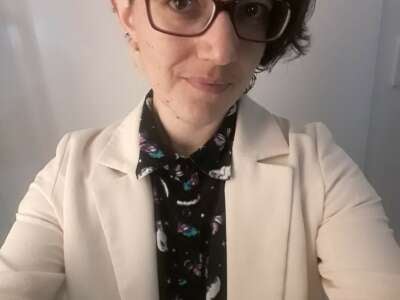
NICOLE ERIN MORSE is a scholar of queer and trans media production and a community organizer in South Florida with Jewish Voice for Peace and the Community Hotline for Incarcerated People. They have published original research in Jump Cut, Collateral, and elsewhere, and their book Selfie Aesthetics: Seeing Trans Feminist Futures in Self-Representational Art is available through Duke University Press.
As Israel’s genocide in Gaza continues, Department of Education investigations are chilling dissent at US campuses.
By Arvind Dilawar ,
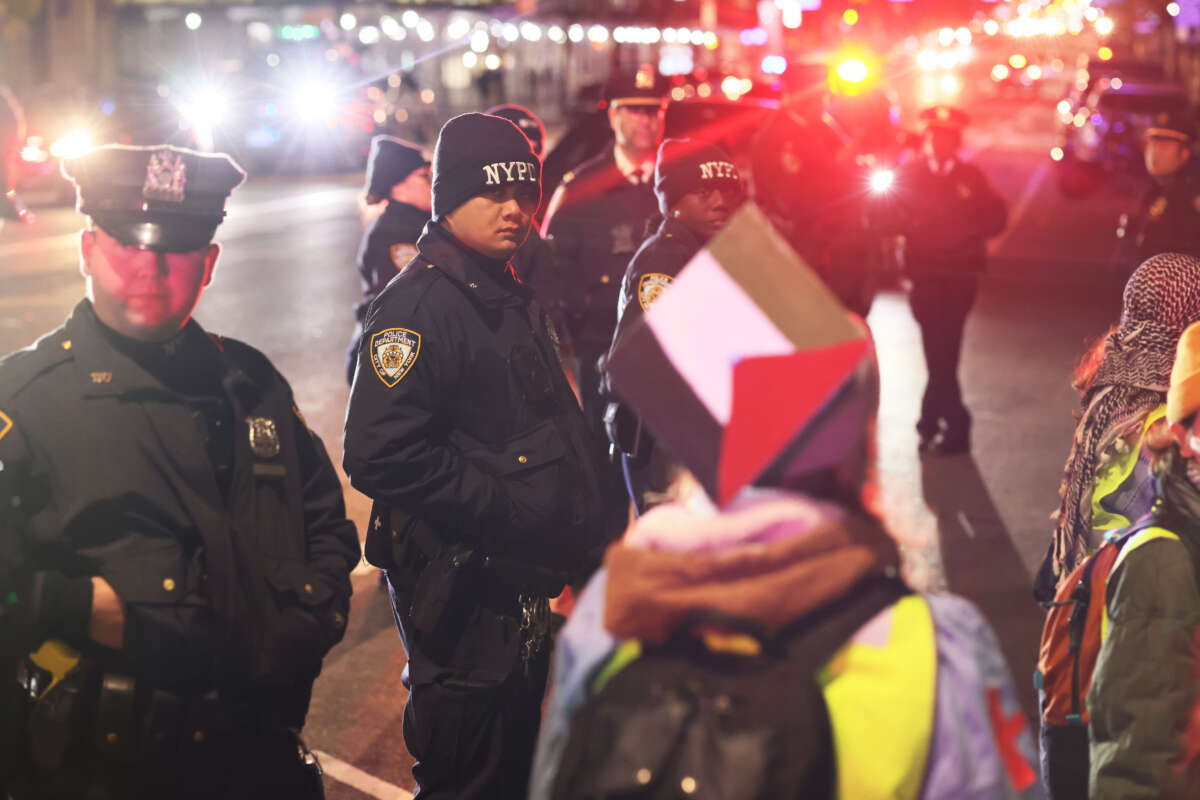
Any honest freelance journalist will admit that rejection is simply part of the job. Every story pitch is basically a swing at bat in which the odds of striking out may be higher or lower but are always present. Sometimes the story’s been done, sometimes it’s just too weak — and sometimes it ruffles the feathers of the publisher who is under investigation by the United States Department of Education (DOE) over allegations of supposed antisemitism.
That last circumstance recently happened to me. While it may sound rare, the DOE’s Office for Civil Rights currently has dozens of such investigations, which are effectively stifling criticism of Israel at schools across the U.S.
“Label Them Anti-Semitic”
The Smart Set is an online publication covering arts and culture published by Pennoni Honors College at Drexel University. I have been contributing to The Smart Set on and off since 2019, writing about everything from growing meat in test tubes to the politics of W.E.B. Du Bois, but focusing primarily on books.
In that vein, and in light of Israel’s ongoing genocide in Gaza, my most recent story for The Smart Set was about George Orwell’s perspective on colonization — that it dehumanizes the colonizer, as well as the colonized — and how that perspective endures in journalist Sylvain Cypel’s book, The State of Israel vs. the Jews. After initial interest from The Smart Set’s managing editor, Erica Levi Zelinger, my draft was summarily rejected by the dean of Pennoni Honors College, Paula Marantz Cohen — a first, coming after more than a dozen accepted submissions. By way of explanation, Zelinger directed me to a statement by Drexel’s president regarding an ongoing investigation by the DOE into the university for reported harassment of Jewish students.
RELATED STORY
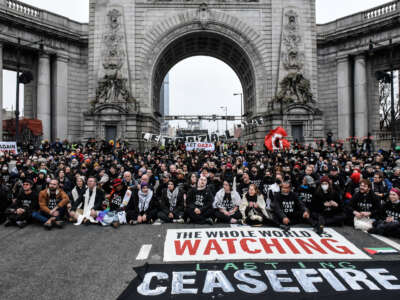
OP-ED |
HUMAN RIGHTS
Amid Israel’s Brutality in Gaza, It’s Time to Commit to Anti-Zionism
As Israel devastates Gaza, Jewish anti-Zionists are resisting and insisting that anti-Zionism is not antisemitism.
By Brant Rosen , TRUTHOUT December 5, 2023
Contacted for comment for this article, Drexel denied that there was any connection between the DOE investigation and the rejection of my story.
“[Cohen’s] feeling is not that we can’t publish a piece on the conflict, but that this piece does not present a fair and balanced view of this volatile and complex situation,” said Zelinger, who also serves as director of marketing and media for Pennoni Honors College. “As for the U.S. Department of Education’s investigation into the actions of Drexel University, that has nothing to do with our rejection of the piece and that email was shared with you merely to share a general response from Drexel University.”
Drexel’s denial aside, criticism of Israel being suppressed with allegations of “antisemitism” is so prevalent that it is, ironically, a theme of Cypel’s book: “Israel’s ideological influence has never seemed so visible,” writes Cypel. “It effectively silences its critics by threatening to label them anti-Semitic.”
“The University Tries to Suppress and Silence Us”
The episode above would be yet another mundane rejection in a career inevitably filled with them were it not a small example of a much broader trend in higher education.
“Just as young people were at the forefront of the protests against the Vietnam War and the movement to end South African apartheid, young people are once again on the right side of history in standing unequivocally for the freedom and dignity of the people of Palestine,” writes a spokesperson for Jewish Voice for Peace (JVP), which organizes against Zionism, or Jewish nationalism, at many US universities, in an email to Truthout. “Within the Jewish community, so many young people are challenging the Zionist propaganda that they were raised with and are choosing instead to organize for collective safety and liberation.”
Anti-Zionists of all stripes, including Jews like those with JVP, are increasingly being labeled antisemitic by defenders of Israel. Since at least 2019, the DOE has been considering a definition of antisemitism that includes all criticism of Israel, although that has yet to be formalized. Nevertheless, the DOE previously tried to use such a definition to shut down organizing related to Boycott, Divestment and Sanctions, a movement advocating nonviolent economic opposition to the Israeli occupation of Palestine, at Rutgers University.
Following the Hamas attacks on Israel on October 7, the DOE appears to once again be using the veneer of antisemitism to stifle criticism of Israel, opening at least 52 investigations into alleged “discrimination involving shared ancestry” at schools nationwide. In a press release, the department describes these “Title VI” investigations as covering both antisemitic and Islamophobic incidents but further suggests that the former outnumbers the latter more than two-to-one. A more in-depth review of three of the most high-profile schools — Harvard, Columbia and Cornell — also signals that, like Drexel, the respective investigations all relate specifically to alleged harassment of Jewish students.
The DOE refused to answer questions about the investigations. “The department does not comment further on pending investigations,” said Jim Bradshaw, press officer at the DOE.
Although investigations are just that — inquiries in which wrongdoing has yet to be determined — the DOE appears to already be having an impact on campuses, with everything from attempts at managing criticism of Israel to silencing it altogether in the wake of new DOE probes.
“The Zionist lobby has employed Title VI complaints as a tactic to disrupt pro-Palestinian student organizing on for many years, so the connection between DOE investigations and repression of pro-Palestinian organizing by school administrators is a well-documented phenomenon,” writes the Media and Messaging Committee of National Students for Justice in Palestine (NSJP), that has been organizing against Israel’s occupation of Palestine since 1993, in an email to Truthout. “A recent noteworthy example: Rutgers University-New Brunswick suspended their SJP chapter the same day that the DOE announced it had launched a Title VI investigation into the school.”
In November, Columbia University beat the DOE to the punch, suspending university chapters of both JVP and SJP days before the department opened two investigations into the school. Nevertheless, the administration followed up with a panel on misinformation, discussion on “constructive conversations,” task force on antisemitism and a series of “reinvestments” in values. Students, alumni and faculty responded with open letters and demonstrations condemning the administration’s censorship and continuing to call for a ceasefire in Gaza, where at least 24,285 Palestinians have been killed by Israeli forces, as of this writing.
“The more the university tries to suppress us and silence us, the higher we will rise and the louder we will become,” Mohsen Mahdawi, a member of SJP at Columbia, told campus newspaper Columbia Spectator.
The DOE opened its investigation into Cornell on November 16, after which the administration organized a talk on racism and interfaith dinner. Far from being reassured, students critical of Israel, as well as those of Muslim and Arab backgrounds in general, continued to feel sidelined by the administration, both in regards to threats made against them and their calls for the university to divest from companies connected to Israel’s military.
“The university is still trying to silence any pro-Palestine movements on campus, which is definitely something we’re fighting against,” Sadeen Musa, vice president of SJP at Cornell, told campus newspaper The Cornell Daily Sun.
Nor have university administrators themselves been spared. The most prominent of such cases is undoubtedly that of Claudine Gay, Harvard’s first Black president. The DOE opened its investigation into Harvard in November. Gay was called to testify in front of Congress regarding alleged antisemitism on campus in December. She resigned her post in January.
Gay’s letter of resignation makes reference to the investigations into antisemitism, as well as accusations of plagiarism, which were widely seen as pretext for her ousting. “It has been distressing to have doubt cast on my commitments to confronting hate and to upholding scholarly rigor,” wrote Gay, “and frightening to be subjected to personal attacks and threats fueled by racial animus.”
“A Movement Starts at a Few Prestigious Universities”
Beyond the implications for First Amendment freedom of speech protections, the DOE stifling criticism of Israel at universities in the U.S. also has a material dimension. U.S. universities may appear disconnected from Israel’s ongoing genocide in Gaza, but that simply isn’t the case. Inspired by the Boycott, Divestment and Sanctions movement, students are often the first to point out how their respective universities feed the Israeli war machine.
The connections between U.S. universities and Israel are economic, academic and social. The endowments of Ivy League schools are valued at billions of dollars each, and students at Harvard, Cornell and Columbia have been organizing to push their universities to divest from Israel since at least 2002, 2014 and 2016, respectively. U.S. universities also have academic relationships with Israeli counterparts, such as Cornell with Technion Israel Institute of Technology and Columbia with Tel Aviv University. Some student groups even offer free trips to Israel, which have been criticized for obscuring the Israeli occupation of Palestine.
In The State of Israel vs. the Jews, Cypel also notes the immense social power that U.S. universities, especially the most highly regarded, have over U.S. society. His discussion with J.J. Goldberg, former editor of progressive Jewish outlet The Forward, reveals why campuses have become increasingly important sites where Israel must be contested. “In the United States, the process is always the same,” Goldberg tells Cypel. “A movement starts at a few prestigious universities, and then spreads.”
Calls for a free Palestine have already spread well beyond the gates of a few prestigious universities, from City Hall in San Francisco to Mother Emanuel African Methodist Episcopal Church in Charleston, and around the world. As long the Israeli genocide in Gaza, raids in the West Bank, and occupation of all Palestine persist, the student movements’ resilience should be an example for us all.
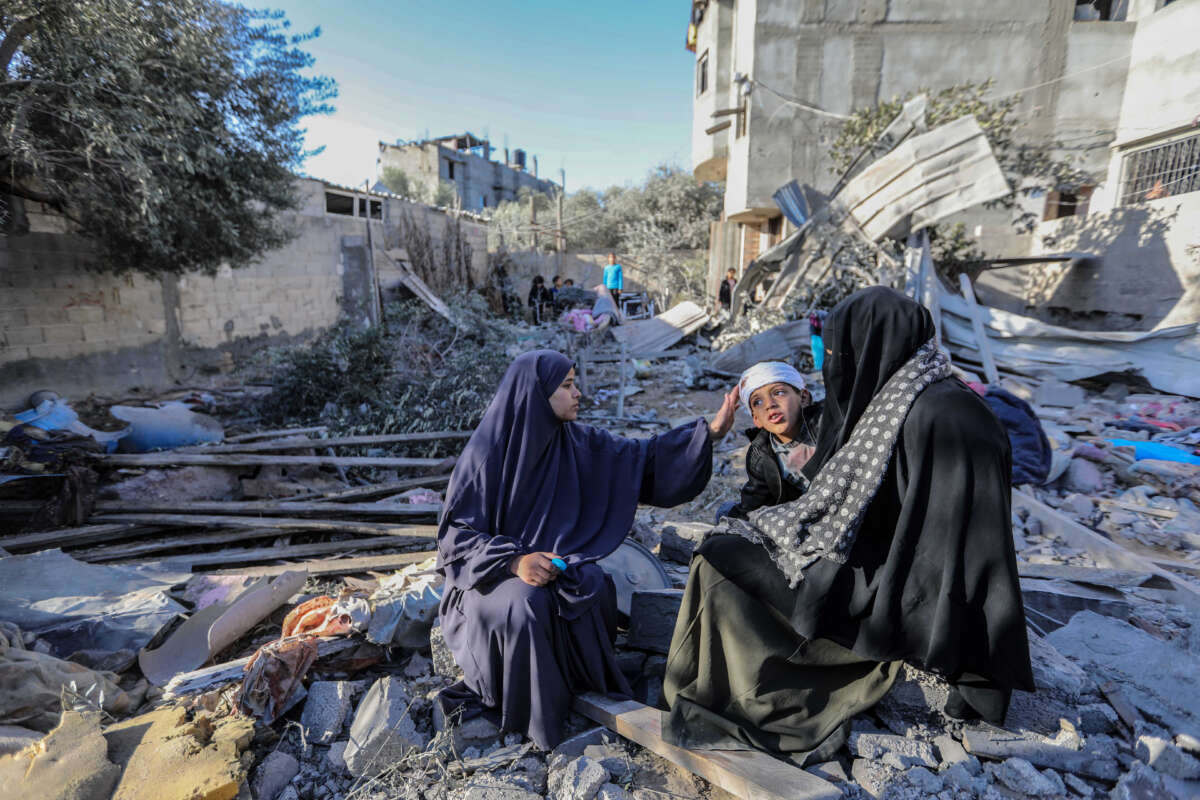 People inspect damage to their homes caused by Israeli air strikes, on January 18, 2024, in Rafah, Gaza.AHMAD HASABALLAH / GETTY IMAGES
People inspect damage to their homes caused by Israeli air strikes, on January 18, 2024, in Rafah, Gaza.AHMAD HASABALLAH / GETTY IMAGES